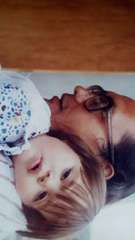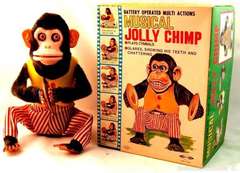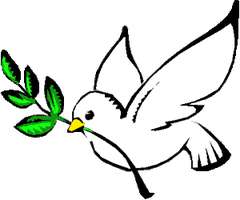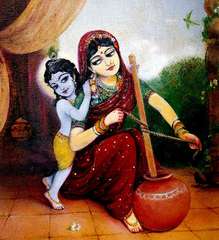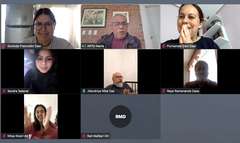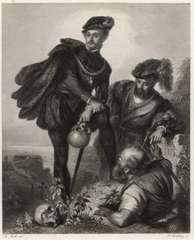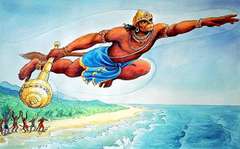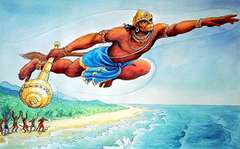JAYA, SRI SRI GURU AND GAURANGA !!
ALL GLORIES TO SRILA PRABHUPADA !! and his loyal and dedicated disciples like you.
HpS - 🐷
On Saturday, June 19, it was unanimously agreed to unite the technical team and the communications team of SOLARIS-Hispánico (in total there are 10 members), everyone is happy, this is manifested in the enthusiastic and devotional atmosphere of the integrated team.
ASA - Supreme Absolute Undifferentiated Commando (SAUC) - 👍 👍👍👍 👍
Three important points are currently being addressed.
1) A manual of functions to make the service of each member and their contribution more organized and efficient.
2) A marketing plan (mother Rati-manjari made a proposal). This week we have dealt with the topic The SOLARIS Brand And that the magazine offers, a summary below.
The SOLARIS Brand: As a means of communication we want to establish ourselves as a useful platform for interculturality and spirituality. Our thematic axes are based on the cultivation of the human spirit, within them we can mention the sacred, education, art, psychology, philosophy, ecology and world classical literature, among others. It's okay?
HpS - The Light of the Bhagavata seems a good example of Srila Prabhupada. It focuses on Cultivation of the Human Spirit and that included sacred, education, art... the don't need to be a separate effort, no?
What the magazine offers: SOLARIS offers a serious, tall, intense, sharp dialogue and at the same time a resilient path of personal and collective transformation. To fulfill this offer, SOLARIS has the following sections: perspectives, essays, articles, interviews, the cultural portal and reviews. Any suggestion?
3) Make a calendar and schedule of tasks and activities to monitor and ensure that the objectives set are met, for this, mother Govinda Pramodini has made a macro in Excel to fulfill this purpose.
Two more points:
First, the website will be ready in its beta version in Spanish this Friday, July 2.
Second, we have not yet received messages about the film in the email, [email protected], so we ask once again the members of the blog that if they have any photos or content that could be used for the film, send them to this mail.
HpS - Which film? DTC-UT? Need photos and content for what part of that film?
It has been very nice to have extended conversations with you since you write this.
Of course NO NIOS funding can go on for any project until we get a formal connection between an Assistant Treasurer for Peru and Treasurer here.
We think DTC-UT should lead the ASA Sankirtan efforts. Its products can fill Solaris and novel things from Solaris can drive the film.
We don't think getting the Academic Accreditation is as important as making the magazine a vital cultural item. Here is an example: https://en.wikipedia.org/wiki/The_Atlantic.
Of course, academic respectability will follow, no?
If Krsna wants our work with Philemon Foundation will progress and be basis for a lot of other development for the film. Then, we need a 7-minute trailer fixing the idea of the film and some practical ideas for implementation.
O.K.?
Let us stay connected to Srila Prabhupada and remain strong.
That's all for now, thank you so much for tolerating my deficient service, JAY SRI RAMA!!
HpS - We are probably worse deficient.
---------------------------------------------------------------------------------------------------------
El sábado 19 de junio se acordó por unanimidad unir el equipo técnico y al equipo de comunicaciones de SOLARIS-Hispánico (en total hay 10 miembros), todos están contentos, eso se manifiesta en el ambiente entusiasta y devocional del equipo integrado.
Actualmente se está tratando tres puntos importantes.
1) Un manual de funciones para hacer más organizado y eficiente el servicio de cada miembro y su aporte.
2) Un plan de marketing (la madre Rati-manjari hizo una propuesta). Esta semana hemos tratado el tema La Marca SOLARIS Y que ofrece la revista, a continuación, un resumen.
La Marca SOLARIS: Como medio de comunicación queremos establecernos como una plataforma útil para la interculturalidad y la espiritualidad. Nuestros ejes temáticos están basados en el cultivo del espíritu humano, dentro de ellos podemos mencionar lo sagrado, la educación, el arte, la psicología, la filosofía, la ecología y la literatura clásica mundial, entre otros. ¿Está bien?
Que ofrece la revista: SOLARIS ofrece un dialogo serio, alturado, intenso, agudo y al mismo tiempo un camino resiliente de transformación personal y colectiva. Para cumplir este ofrecimiento SOLARIS tiene las siguientes secciones: perspectivas, ensayos, artículos, entrevistas, el portal cultural y reseñas. ¿Alguna sugerencia?
3) Hacer un calendario y cronograma de tareas y actividades para hacer un seguimiento y garantizar que se cumplan los objetivos trazados, para esto, la madre Govinda Pramodini ha hecho una macro en Excel para cumplir con este propósito.
Dos puntos más, primero, la página web va a estar lista en su versión beta en español este viernes 2 de julio. Segundo, aún no hemos recibido mensajes en torno a la película en el correo [email protected] por lo que le pedimos una vez más a los miembros del blog que si tienen alguna foto o contenido que pueda servir para la película lo envíen a este correo.

